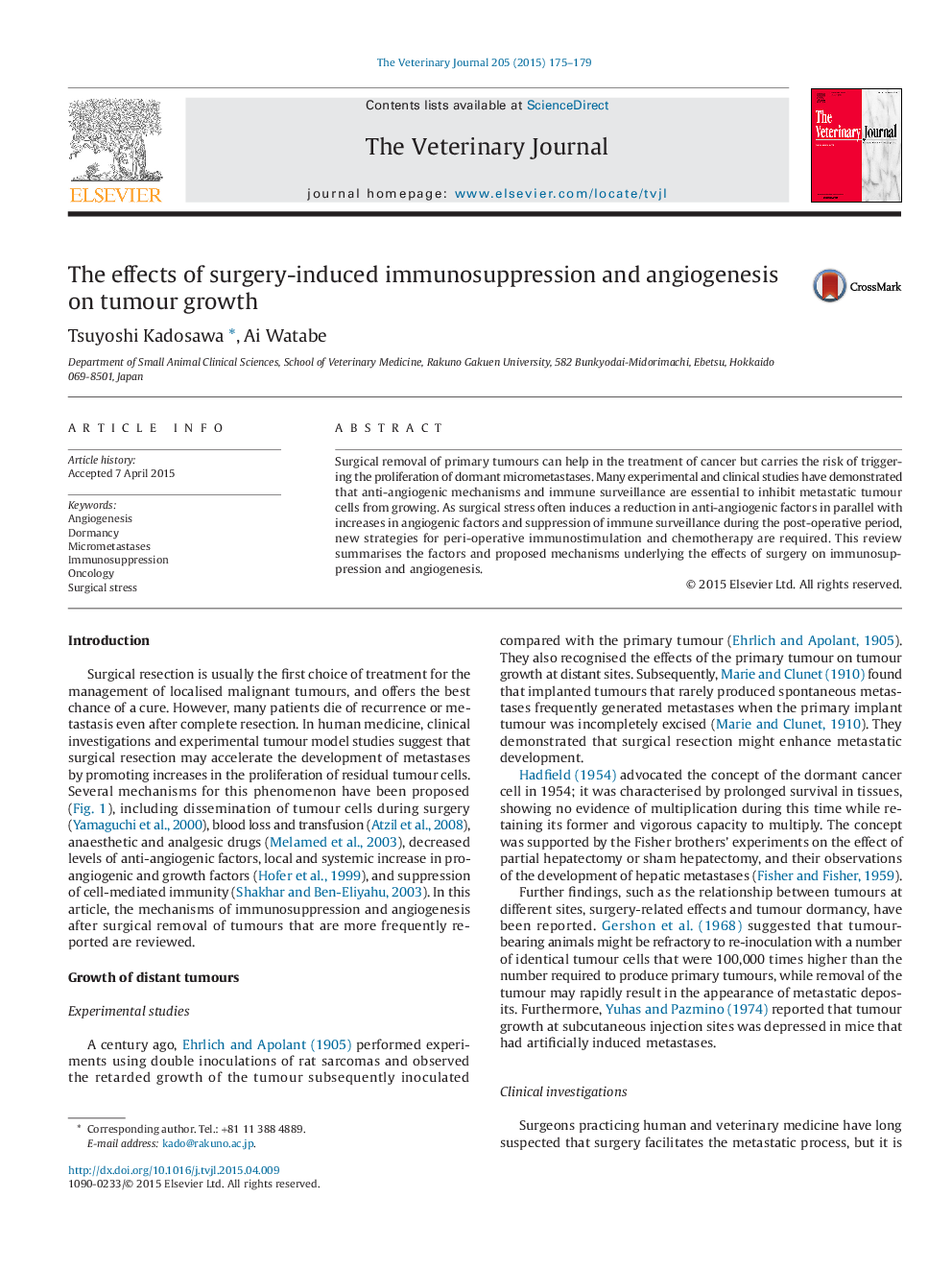| Article ID | Journal | Published Year | Pages | File Type |
|---|---|---|---|---|
| 5797467 | The Veterinary Journal | 2015 | 5 Pages |
â¢Surgical resection is usually the first choice of treatment for localised tumours.â¢Surgical stress often triggers the proliferation of dormant micrometastases.â¢Surgery induces the activation of angiogenesis with vascularisation of dormant tumours.â¢Surgery induces dysfunction in immune surveillance of disseminated tumour cells.â¢Surgeons must take steps against surgery-induced immunosuppression and angiogenesis.
Surgical removal of primary tumours can help in the treatment of cancer but carries the risk of triggering the proliferation of dormant micrometastases. Many experimental and clinical studies have demonstrated that anti-angiogenic mechanisms and immune surveillance are essential to inhibit metastatic tumour cells from growing. As surgical stress often induces a reduction in anti-angiogenic factors in parallel with increases in angiogenic factors and suppression of immune surveillance during the post-operative period, new strategies for peri-operative immunostimulation and chemotherapy are required. This review summarises the factors and proposed mechanisms underlying the effects of surgery on immunosuppression and angiogenesis.
